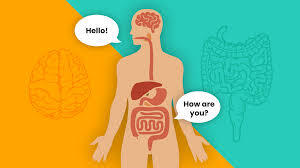
From Gut to Brain: How Our Microbiome Influences Mental Health
If there is one topic that needs a lot of discussion for everyone to benefit from, it has got to be mental/ psychological/emotional health. So many people suffer from emotional wellbeing issues, yet they do not know how to go about it, and at times it even ends up in fatalities. It is one of the reasons people are encouraged to try and reduce stress by doing things they love. It can be by going for walks, exercising, playing their favorite games in great casinos like hit spin, watching movies, and spending time with loved ones.
When speaking about mental health, there is an emerging field of research uncovering a remarkable connection between the gut and the brain. Traditionally viewed as distinct systems, recent scientific findings have illuminated a complex and bidirectional relationship between the human gut microbiome --- the vast ecosystem of microorganisms residing in our digestive tract --- and emotional well-being. This field of study has implications for our understanding and treatment of cognitive health disorders. It offers new avenues for therapeutic interventions and preventive strategies. Let's explore the captivating journey from gut or stomach to brain and learn how microbiomes influence emotional wellbeing.
What Is the Gut Microbiome
The human abdomen microbiome (bacterial flora) is a bustling community of trillions of microorganisms. They include bacteria, viruses, fungi, and other microscopic organisms that inhabit the gastrointestinal tract. This dynamic ecosystem plays a vital role in various physiological processes like:
- Digestion;
- Nutrient Absorption;
- Immune Function;
- Metabolism.
The composition and diversity of our stomach's bacterial flora are influenced by factors like diet, lifestyle, genetics, and environmental exposures.
Emerging research has underscored the profound impact of the gut bacterial flora on our overall health, extending beyond gastrointestinal disorders to encompass diverse conditions, including obesity, diabetes, autoimmune diseases, and even mental health disorders. The complex interplay between the abdomen microbiome and our central nervous system --- the brain and spinal cord --- has garnered particular attention due to its implications for psychological well-being.
The Gut-Brain Axis: Bridging Two Vital Systems
At the heart of the stomach-brain connection lies the concept of the gut-brain axis --- a complex communication network linking the stomach, central nervous, and endocrine systems. This bidirectional pathway enables constant crosstalk between the abdomen and brain through various neural, hormonal, and immune signaling mechanisms.
One key player in this communication network is the vagus nerve. It is a cranial nerve that serves as a vital conduit for transmitting signals between the stomach and the brain. Additionally, the production of neurotransmitters and neuroactive compounds by stomach microbes, such as serotonin, dopamine, and gamma-aminobutyric acid (GABA), can influence brain function and behavior. Moreover, the abdomen microbiome exerts modulatory effects on the immune system, which plays a crucial role in neuroinflammation --- a hallmark of many psychiatric disorders.
Impact on Mental Health
Mounting evidence from preclinical studies, animal models, and clinical observations has showcased the role of the stomach microbiome in shaping various aspects of emotional wellbeing. These include:
- Mood Regulation;
- Stress Response;
- Cognition;
- Behavior.
Dysbiosis --- a disruption in the balance of gut microbial communities --- has been implicated in psychiatric conditions such as depression, anxiety disorders, bipolar disorder, and even neurodevelopmental disorders like autism spectrum disorder (ASD).
Experts have identified intriguing correlations between alterations in stomach microbiota composition and the onset, severity, and treatment response of cognitive wellbeing disorders. Moreover, interventions targeting the stomach microbiome, such as probiotics, prebiotics, dietary modifications, and fecal microbiota transplantation (FMT), have shown promise in ameliorating symptoms and improving overall well-being in specific patient populations.
Clinical Implications and Future Directions
The growing field of psychobiotics --- an emerging class of probiotics with potential emotional wellbeing benefits --- holds promise for novel therapeutic approaches to psychiatric disorders. By harnessing the symbiotic relationship between abdomen microbes and brain function, researchers aim to develop precision medicine strategies tailored to individualized microbiome profiles.
Furthermore, the concept of "nutritional psychiatry" emphasizes the importance of dietary factors in promoting mental wellness and resilience. A balanced diet rich in fibre, fermented foods, omega-3 fatty acids, and other micronutrients not only nourishes our stomach microbiome but also supports optimal brain function and emotional well-being.
While the field of microbiome research continues to evolve rapidly, several challenges remain, including elucidating the underlying mechanisms of microbiome-mind interactions, deciphering the role of specific microbial taxa in psychological wellbeing, and translating research findings into clinical practice effectively.
A Healthy Gut for Great Mental Health
The exciting field of microbiome research has unveiled a profound connection between the human stomach microbiome and mental health. It continues to revolutionize the understanding of psychiatric disorders and open new frontiers for therapeutic innovation. By embracing a holistic approach that considers the intimate interplay between our abdomen and our mind, professionals can develop personalized interventions that promote emotional wellness and resilience, fostering a future where mental health thrives and flourishes.